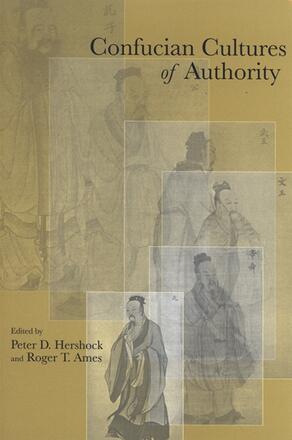
Confucian Cultures of Authority
Alternative formats available from:
Explores a wide range of Confucian-based cultures of authority in China.
Description
This volume examines the values that have historically guided the negotiation of identity, both practical and ideal, in Chinese Confucian culture, considers how these values play into the conception and exercise of authority, and assesses their contemporary relevance in a rapidly globalizing world. Included are essays that explore the rule of ritual in classical Confucian political discourse; parental authority in early medieval tales; authority in writings on women; authority in the great and long-beloved folk novel of China Journey to the West; and the anti-Confucianism of Lu Xun, the twentieth-century writer and reformer. By examining authority in cultural context, these essays shed considerable light on the continuities and contentions underlying the vibrancy of Chinese culture.
While of interest to individual scholars and students, the book also exemplifies the merits of a thematic (rather than geographic or area studies) approach to incorporating Asian content throughout the curriculum. This approach provides increased opportunities for cross-cultural comparison and a forum for encouraging values-centered conversation in the classroom.
Peter D. Hershock is Coordinator of the Asian Studies Development Program at the East-West Center in Honolulu. His books include Chan Buddhism. Roger T. Ames is Professor of Philosophy at the University of Hawaii at Manoa and editor of Philosophy East & West. His many books include the translation (with D. C. Lau) of the classic Chinese work Sun Bin: The Art of Warfare, also published by SUNY Press.
Reviews
"This excellent work deals with a critical issue of our time, the understanding of authority in culture. The topic is of great importance to every one of us, particularly in the context of the globalization of culture. To understand the processes going on around us, we must be able to understand the nature of authority as it is understood historically, within a multiplicity of cultures, and contemporarily, within a world of both diminishing and increasing boundaries. The topic itself stretches across our own disciplinary boundaries, marking its relevancy for philosophy, religion, political science, and history. What is addressed here is crosscutting and cutting edge in its significance." — Rodney L. Taylor, author of The Illustrated Encyclopedia of Confucianism
"A rich and diverse introduction to how Confucians have thought about their tradition and lives for more than twenty-five hundred years, this fine book will certainly provoke thought in those who believe that they know something already about the topic of the formation of Confucian self-identity."— John H. Berthrong, coauthor of Confucianism: A Short Introduction